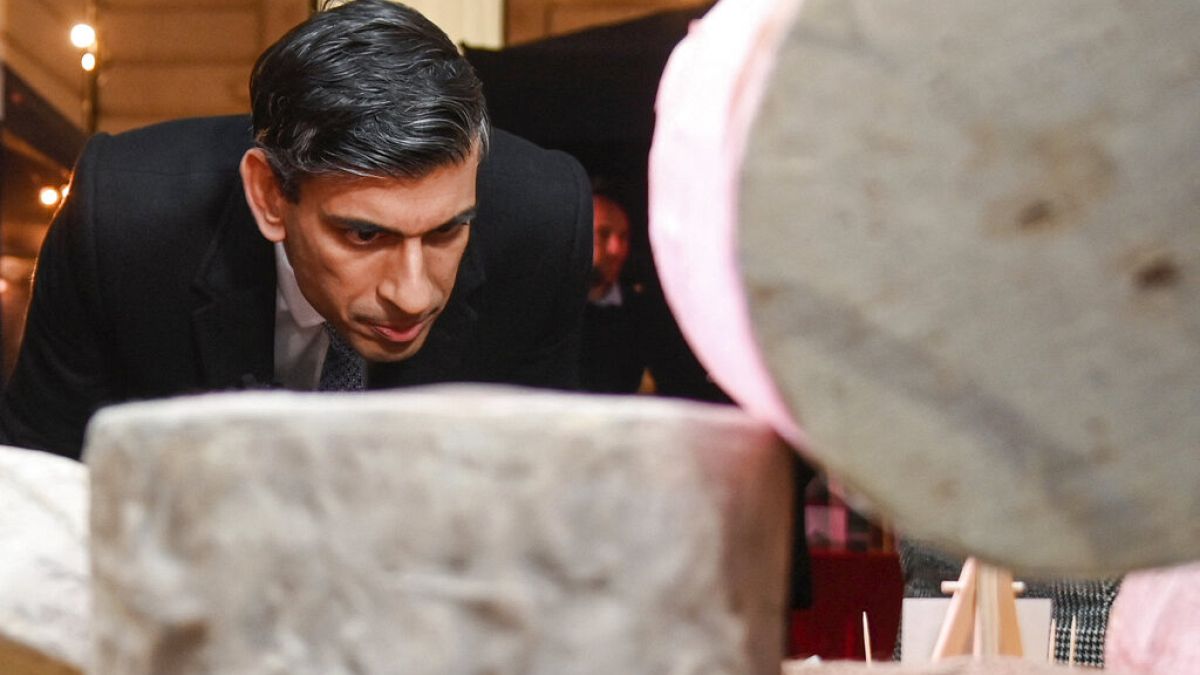The two nations have put a halt to their trade discussions after they couldn’t come to an agreement over dairy products.
The British government has called off post-Brexit trade talks with Canada after discussions broke down over disagreements related to the import and export of beef and cheese.
The two countries have been negotiating a new trade deal over the past two years since Britain fully left the European Union. Trade between the two has largely continued under the same deal that was originally brokered when Britain was a member of the bloc.
In a statement late on Thursday, the UK government said it "remains open" to restarting talks in the future, but there has been no progress so far. Annual trade between the two countries is valued at around £26 billion (about €30.5bn).
Over time, as the discussions progressed, Canadian negotiators came under mounting pressure from their beef industry and domestic cheesemakers.
Canada’s trade minister, Mary Ng, said on X - formerly known as Twitter - that the Canadian government "will never agree to a deal that isn't good for our workers, farmers, and businesses."
Minette Batters, president of the National Farmers' Union of England and Wales, praised the British government, especially its apparent refusal to allow hormone-linked beef to be imported into Britain.
"Trade in agricultural products is always the first thing to be discussed and the last thing to be agreed," she said. "I am pleased the government has stuck to its line and not given way."
One of the main benefits that was emphasised during Britain's 2016 referendum on its EU membership was that it would allow the country to pursue its independent trade policy.
However, few new trade deals have been negotiated since Brexit, and any ensuing benefits are widely considered to be modest when compared to the trade impediments that have now been established between Britain and the EU. Before Brexit, Britain could trade freely within the bloc.
Britain's Conservative government, which negotiated the post-Brexit trade deal with the EU, sought to downplay the breakdown in talks with Canada.
"It is a benefit of our independent trading status that we are able to insist on the details of each and every deal to ensure that it works, specifically in the UK's interests," said Camilla Marshall, a spokeswoman for Prime Minister Rishi Sunak.
“We are open to restarting talks with Canada in the future where we can build a trading relationship that benefits businesses and consumers on both sides," she added. “There is no schedule for those.”
With the breakdown of talks, there are renewed worries British cars could see higher tariffs from April on exports, when another temporary tariff-free agreement - similar to the one involving cheese - is due to expire.
The British Chambers of Commerce said the breakdown in talks was “unwelcome news” and urged the government to help sectors affected.
“For our dairy exporters and parts of our manufacturing industry the loss of key trade preferences puts them in a worse position than before 2020," said William Bain, the chamber's trade policy chief.
Britain's main opposition Labour Party, which is far in front of the Conservatives in polls ahead of a general election slated to come sometime this year, said the collapse of the talks was another “significant failure” by the government to deliver on its post-Brexit promises.
